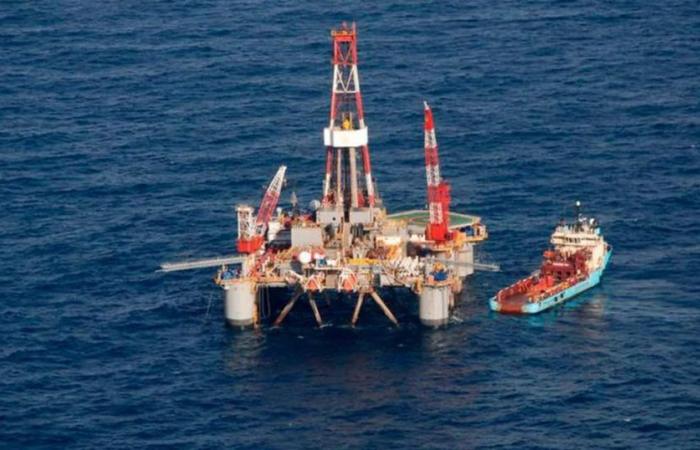Norway’s state-owned company Equinor completed the drilling of the exploratory well, called Argerich I, in the Northern Argentine Basin (CAN)and classified it as “dry“, given that “no clear signs of hydrocarbons have been found“, they stated from the oil company in a statement.
The result of this work goes against the expectation that offshore drilling in the Argentine Sea had generated in the industry. Equinor, associated with the national YPF and the Anglo-Dutch Shellreferred to the activity carried out in “the x1 well in the CAN100 block,” which “was completed safely.”
“The drilling of this first deepwater well It is a milestone in the history of offshore exploration in Argentina”said the Norwegian firm. However, they clarified that the drilling of a single well in a specific area “is not enough to determine the hydrocarbon potential in the Argentine sea, or even within the CAN-100 license,” they noted from the sector.
The drill ship Valaris, flying the flag of the Marshall Islands, spent two months 300 kilometers from Mar del Plata drilling the sea floor. There, she obtained records to verify the existence of oil to be exploited commercially.
The completion of this first task does not rule out any future oil extraction. In Norway, Equinor identified 34 “dry” wells in the North Sea until exploration yielded positive results.
“The presence of Equinor in the country It is not circumstantial to the result of a single well. Equinor’s activities in Argentina include both development in Vaca Muerta and offshore exploration. Recently, we performed 3D seismic acquisition in the North Argentine Basin and are currently acquiring 3D seismic in the Austral and West Malvinas basins. The analysis of this data, together with the information collected in the EQN.MC.Ax-1 (Argerich) well will be essential to obtain a greater understanding of the potential of the subsurface,” said Equinor.
The exploration area in charge of Equinor is one of the 14 blocks that the National State awarded to search for oil and gas in the maritime subsoil.
“We are now entering the phase of analyzing the data obtained with this well, which will take several months. Once the analysis and evaluation stage is completed, we will be in a position to have a definition,” they added.
From the oil company they indicated that the wells off shore They have a high risk of absence of hydrocarbons, something that was evaluated from the beginning. “Initial results confirmed the configuration of the geological model that largely coincides with preliminary studies. “We successfully completed all stages of the operation in an unexplored area and collected large amounts of data and very valuable information that will be subjected to exhaustive analysis and evaluation,” they indicated.
Interest in off shore production in the Argentine sea started in 2019, during the government of Mauricio Macri. At that time, the blocks for exploration in the three aforementioned basins were put out to tender and investments were committed for 800 million dollars.
Exploration tasks in the Argentine sea were finally authorized in 2021, from an environmental point of view, by the government of Alberto Fernandez. In August 2023, exploration operations effectively began in the awarded basins.
The official endorsement sparked protests from environmental groups and neighborhood residents, who resorted to Justice through an amparo that delayed the execution of the tasks. They questioned the contamination that could be caused by both extraction and exploratory seismic activity. The Supreme Court rejected those submissions.
The mayor of the party of General Pueyrredón, Guillermo Montenegro, was one of the spokespersons for this claim and requested that it be guaranteed that there is no environmental impact on tourist beaches. Despite these proposals, this jurisdiction supports carrying out this off shore activity, with controls.
After knowing the results of the exploration, the municipal government of Mar del Plata indicated that “exploration activity continues.” “We are convinced that the offshore industry can boost the development of our region like never before and we will continue to support its development,” he announced. Fernando Muromunicipal secretary of Local Development, Investments and Public-Private Integration.
Through a thread from X, Muro considered that the results of the first offshore well in ultra-deep waters are “partial” and are part of the first stage of exploration.
“We are optimistic regarding the activity. As in any long-term process, immediate results are not always obtained. This novelty does not mean that there is no oil in the area, but rather that it was not found in the places drilled specifically and this result is very useful to know where to look for it in the next exploration,” he concluded.






